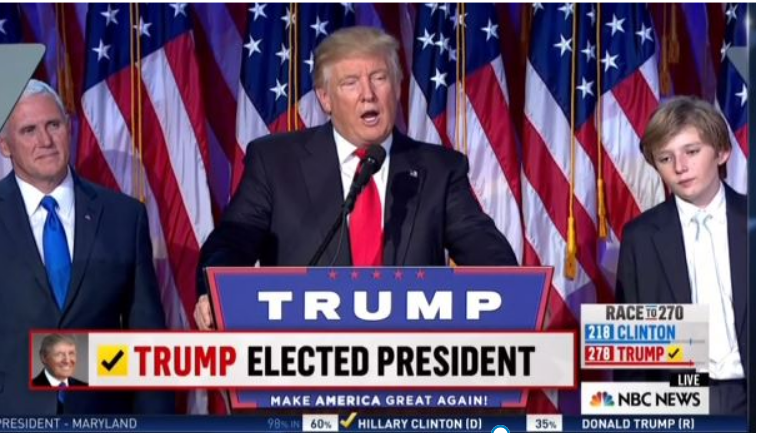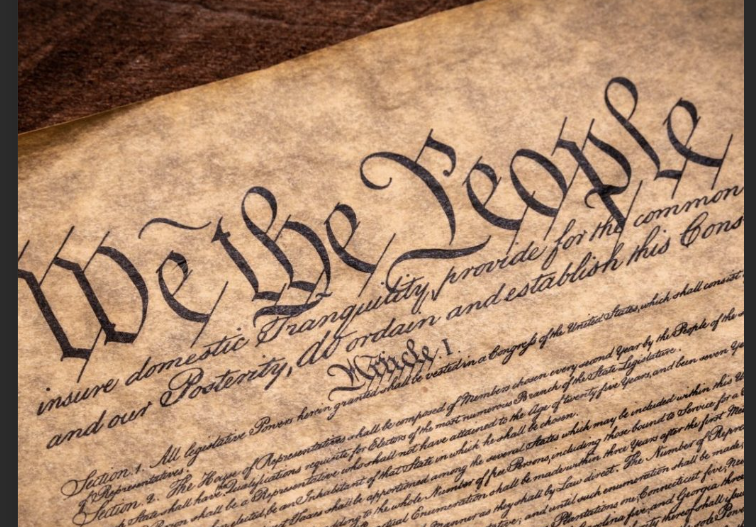The Rights and Freedoms of Americans
- The Rights and Freedoms of Americans
This is a concise history of the Bill of Rights. Today these rights are being tested as never before.
(From Hartley, William H., Vincent and others
In drafting the Constitution, most of the Founding Fathers believed that the safeguards written into it would protect the rights of Americans. But when the Constitution was sent to the states in 1787 for ratification, a great roar of disapproval went up. In Virginia, Patrick Henry protested vigorously against the lack of a specific statement of rights. Other Americans from different states demanded that a Bill of Rights be added to the Constitution. A number of states ratified the Constitution only conditionally. That is, they would approve the Constitution only if it were changed to include these rights.
Two years after the new American government went into effect, the Bill of Rights was added as the first ten amendments to the Constitution. Congress discussed nearly 200 proposals for amendments before it presented these ten to the states for approval. The states ratified these amendments, and they became part of the Constitution in 1791.
 THE BILL OF RIGHTS
THE BILL OF RIGHTS
The first ten amendments to the Constitution, or the Bill of Rights, set forth the priceless rights or freedoms that all Americans may enjoy. A brief summary of these great freedoms is given here.
FREEDOM OF RELIGION
The first right, or freedom, guaranteed in the Bill of Rights is freedom of religion. This right is guaranteed in the First Amendment. Freedom of religion guarantees to all Americans the right to practice any religion they choose, or to practice no religion at all.
Congress is forbidden to establish any religion as our nation’s official religion. Congress cannot favor any one religion over others or tax citizens in order to support any one religion.
FREEDOM OF SPEECH
The right to express your ideas and opinions when you speak is called freedom of speech. Freedom of speech also means the right to listen to the thoughts and opinions of others. This freedom guarantees that Americans are free to express their thoughts and ideas about anything. They may talk freely to their friends and neighbors or speak in public to a group of people. Of course, no one may use his freedom of speech to injure others. If a person knowingly says things that are false about another, he may be sued in court by the person or persons who believe they have been harmed by what he said.
Americans are free to express opinions about their government or anything else. They are free to criticize the actions of the government and of government officials. In a dictatorship, where the nation’s government has all the powers, the people have no right to speak like this. They do not dare to criticize the actions of the government. If they do, they may be imprisoned. But all Americans enjoy the freedom of speech, which is guaranteed in the First Amendment.
FREEDOM OF THE PRESS
The freedom to express your ideas and opinions in writing is known as freedom of the press. This freedom is closely related to freedom of speech and is also guaranteed by the First Amendment.
Freedom of the press gives all Americans the right to express their ideas and thoughts freely in writing. This writing may be in newspapers, books, magazines, or any other printed or written form. Americans are also free to read what others write. They may read any newspaper, book or magazine they want. Because they are free to read a variety of facts and opinions, Americans can become better-informed citizens.
FREEDOM OF ASSEMBLY
Another priceless freedom guaranteed by the First Amendment is freedom of assembly, or freedom to hold meetings. Americans are free to meet together to discuss problems and to plan their actions. Of course, such meetings must be carried on in a peaceful way.
FREEDOM OF PETITION
The freedom of petition is the right to ask your government to do something or to refrain from doing something. The First Amendment contains this guarantee, also. The freedom of petition gives you the right to write to your Congressman and request him to work for the passage of laws you favor. You are free to ask him to change laws that you do not like. The right to petition also helps government officials to know what Americans think and what actions they want the government to take.
The Second Amendment to the Constitution guarantees Americans the right to bear arms. In the early years of our nation, Americans needed weapons in order to serve in the militia, or volunteer armies, that were established to defend our states. The militia provided protection during emergencies, too. Many Americans also believed that without weapons they would be powerless if the government tried to overstep its powers and rule by force.
The Third Amendment states, “No soldier shall, in times of peace, be quartered in any house. . . .” Under British rule, the colonists sometimes had to feed and house British soldiers against their will. As a result, Americans wanted this practice forbidden under the Bill of Rights.
THE RIGHT TO EQUAL JUSTICE
The Bill of Rights contains many rights that are guaranteed to persons accused of a crime. Amendments Five, Six, Seven, and Eight are all concerned with these rights. Our nation places great importance on these rights in order to guarantee equal justice for all Americans.
A person must be indicted, or formally accused of a crime, by a group of citizens called a “grand jury” before he can be brought into court for trial.
A person accused of a crime is guaranteed the right to know what law he is accused of breaking.
A person accused of a crime has a right to a prompt public trial by a jury of his fellow citizens.
An accused person cannot be put into prison and kept there for weeks or months while awaiting a trial. He has the right to leave jail, in most cases, if he can raise a certain sum of money, or bail, as a pledge that he will appear at his trial.
An accused person has a right to a lawyer to represent him in court.
All the testimony and evidence against an accused person must be presented publicly in court.
The accused person has the right to call any witnesses to appear if their testimony will help him.
The accused person cannot be forced to testify or give evidence against himself.
If the accused person is found guilty, he cannot be given cruel or unusual punishment. If the accused person is found not guilty of a serious crime, he cannot be tried a second time for this same crime.
THE RIGHT TO OWN PRIVATE PROPERTY
The Fifth Amendment guarantees Americans the right to own private property. No person may take away anything that we own. Nor can the government seize our land, money, or other forms of property without cause, or without paying for it. The right to own private property is one of America’s basic freedoms. Our free economic system is based upon this right.
THE RIGHT TO ENJOY MANY OTHER FREEDOMS
To make doubly sure that Americans should enjoy every right and freedom possible, Amendment Nine was added to the Constitution. This amendment states that the list of rights contained in the Bill of Rights is not complete. There are many other rights that all Americans have and will continue to have even though they are not mentioned in the Bill of Rights. Among them are the following.
Freedom to live or travel anywhere in our nation
Freedom to work at any job for which we can qualify
Freedom to marry and raise a family
Freedom to receive a free education in good public schools
Freedom to join a political party, a union, and other legal groups
As a final guarantee of our rights, the Tenth Amendment set aside many powers of government for the states. This Amendment says that all powers not given to the federal government by the Constitution, nor forbidden to the states, are set aside for the states, or for the people. This provision leaves with the states the power to act in many ways to guarantee the rights of their citizens.
SUMMARY- American Rights and Freedoms
Government is the authority or power that people establish to help them run their affairs.
Governments serve many important purposes, but the most important one is that government makes it possible for people to live and work together. The government provides us with rules of conduct we can follow. Government makes it possible for people to live by known laws and helps provide many services that citizens acting alone could not perform themselves.
Our nation’s government is based on the American Constitution. This Constitution, together with its Bill of Rights and other amendments, provides us with a workable plan of government. The Constitution also guarantees to all Americans many priceless rights and freedoms.
Our nation’s government is based upon the approval, or consent, of the people who are governed. It is a federal system in which certain powers are given to the national government and other powers are left to the states and to the people. Certain powers are shared by both federal and state governments. In both federal and state governments, powers are separated and balanced among three branches of government.
Bill of Rights Amendments 1-10
The Conventions of a number of the States having, at the time of adopting the Constitution, expressed a desire, in order to prevent misconstruction or
abuse of its powers, that further declaratory and restrictive clauses should be added, and as extending the ground of public confidence in the Government will best insure the beneficent ends of its institution;
Resolved, by the Senate and House of Representatives of the United States of America, in Congress assembled, two-thirds of both Houses concurring, that the following articles be proposed to the Legislatures of the several States, as amendments to the Constitution of the United States; all or any of which articles, when ratified by three-fourths of the said Legislatures, to be valid to all intents and purposes as part of the said Constitution, namely:
Amendment I
Congress shall make no law respecting an establishment of religion, or prohibiting the free exercise thereof; or abridging the freedom of speech, or of the press; or the right of the people peaceably to assemble, and to petition the government for a redress of grievances.
Amendment II
A well regulated militia, being necessary to the security of a free state, the right of the people to keep and bear arms, shall not be infringed.
Amendment III
No soldier shall, in time of peace be quartered in any house, without the consent of the owner, nor in time of war, but in a manner to be prescribed by law.
Amendment IV
The right of the people to be secure in their persons, houses, papers, and effects, against unreasonable searches and seizures, shall not be violated, and no warrants shall issue, but upon probable cause, supported by oath or affirmation, and particularly describing the place to be searched, and the persons or things to be seized.
Amendment V
No person shall be held to answer for a capital, or otherwise infamous crime, unless on a presentment or indictment of a grand jury, except in cases arising in the land or naval forces, or in the militia, when in actual service in time of war or public danger; nor shall any person be subject for the same offense to be twice put in jeopardy of life or limb; nor shall be compelled in any criminal case to be a witness against himself, nor be deprived of life, liberty, or property, without due process of law; nor shall private property be taken for public use, without just compensation.
Amendment VI
In all criminal prosecutions, the accused shall enjoy the right to a speedy and public trial, by an impartial jury of the state and district wherein the crime shall have been committed, which district shall have been previously ascertained by law, and to be informed of the nature and cause of the accusation; to be confronted with the witnesses against him; to have compulsory process for obtaining witnesses in his favor, and to have the assistance of counsel for his defense.
Amendment VII
In suits at common law, where the value in controversy shall exceed twenty dollars, the right of trial by jury shall be preserved, and no fact tried by a jury, shall be otherwise reexamined in any court of the United States, than according to the rules of the common law.
Amendment VIII
Excessive bail shall not be required, nor excessive fines imposed, nor cruel and unusual punishments inflicted.
Amendment IX
The enumeration in the Constitution, of certain rights, shall not be construed to deny or disparage others retained by the people.
Amendment X
The powers not delegated to the United States by the Constitution, nor prohibited by it to the states, are reserved to the states respectively, or to the people.










Leave a Reply
You must be logged in to post a comment.